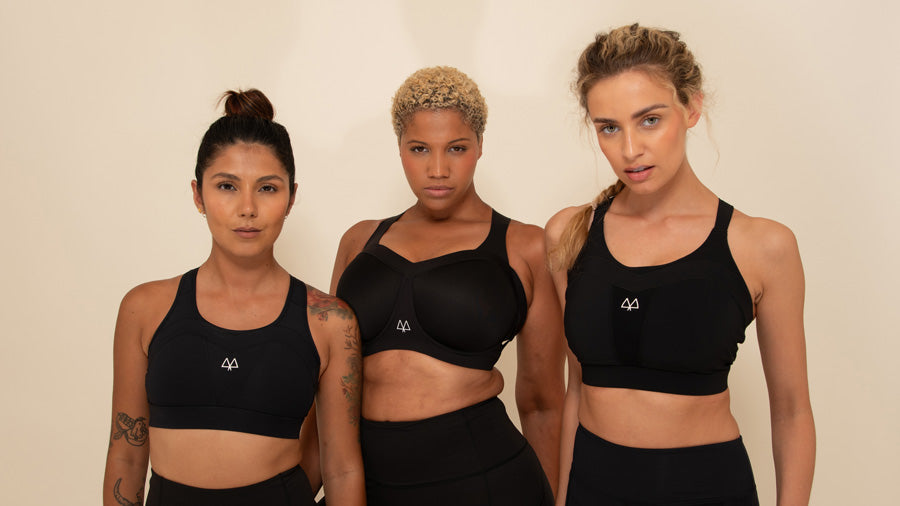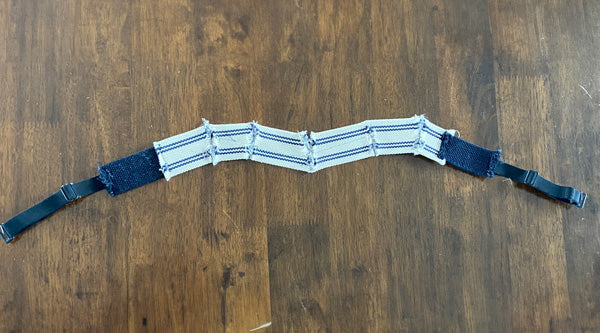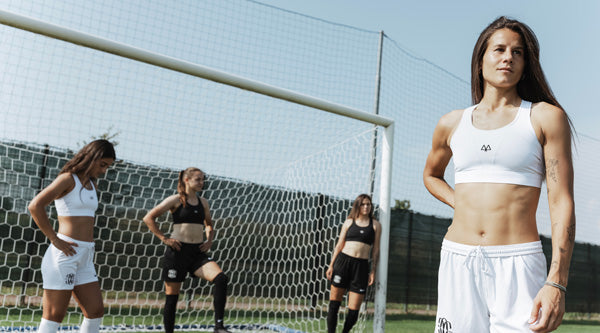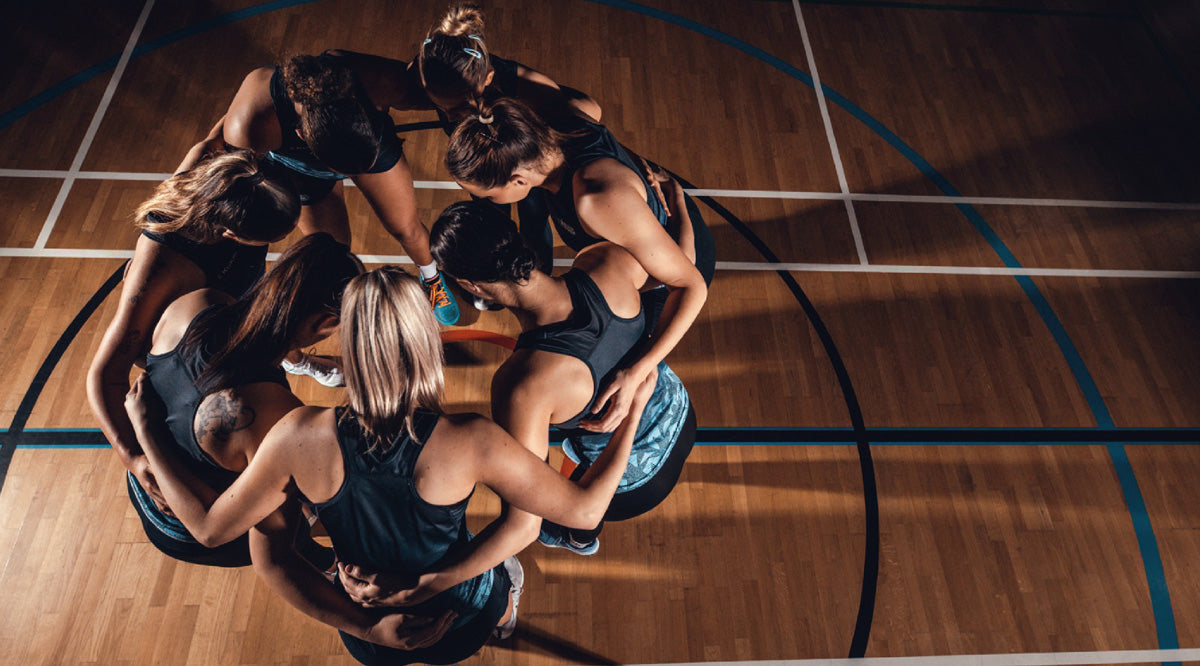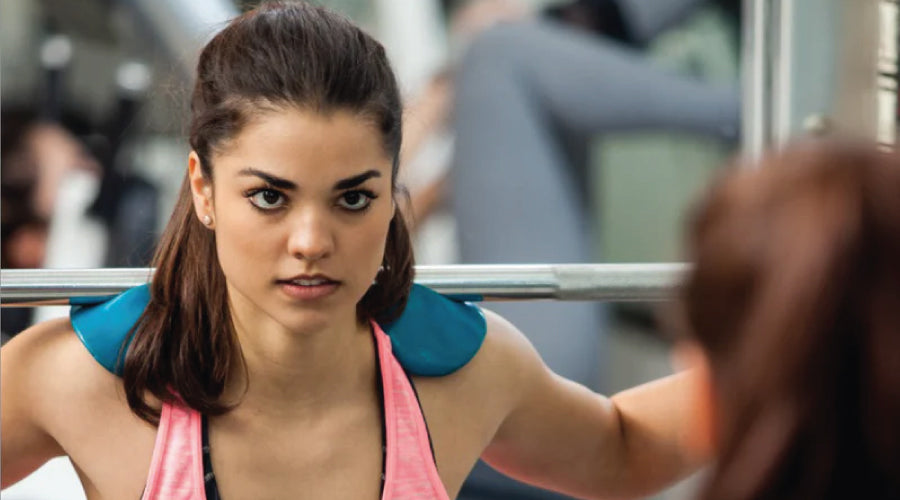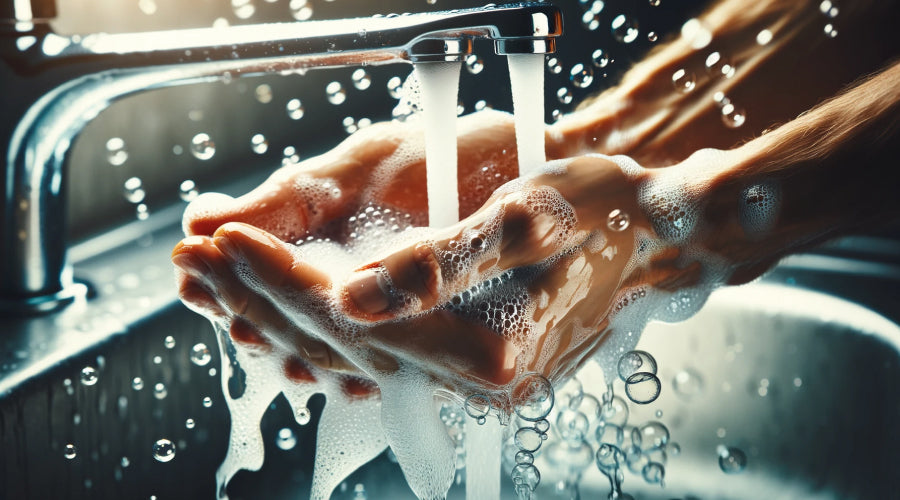
How to Work on Your Fitness During the Coronavirus
Is working out still important to you during the outbreak of coronavirus?

We would strongly argue that there has never been a better time to exercise. Exercise is good for your physical and emotional health and, as we will discuss, can help to protect your immune system.
One of the biggest questions people are currently asking is, is it safe to exercise in public? Especially those who regularly visit gyms, classes, and take part in group activities, such as community runs.
In this post we are going to guide you through...
- Current advice
- Safety measures you can take when at the gym
- The best workouts to do at home
- Advice for those who have trained for an event which has been cancelled
What Is Coronavirus?
According to the NHS, COVID-19 is a new illness that can affect your lungs and airways. It's caused by a virus called coronavirus. The first case was found in China in December 2019.
The virus can be spread through droplets from coughs and sneezes. According to Public Health England (PHE), if you spend more than 15 minutes with someone who is infected, or stand closer than 2 meters, you are increasing your chances of catching the virus.
The main symptoms of coronavirus are a high temperature, difficulties breathing, and a new, persistent cough. Check out the NHS website for further advice and information and what you should do if you are concerned you have the virus.
Government Advice on Coronavirus
The Government has raised the risk in the UK from moderate to high.
Currently, Public Health England has not given any specific advice as to how gyms and local sports clubs should operate at this time.
However, people are being asked to keep a distance of at least 2 meters from each other and to social distance themselves as much as possible to delay the virus spreading at an alarming rate.
In light of this, events have been cancelled all around the world, including major matches or games, marathons, park runs, and some local sports clubs have, or are considering, shutting.
Should I be Working Out During the Coronavirus Outbreak?

Many of you may be asking yourself, should I be working out, going to the gym or attending other sport or fitness activities? With no clear guidance to date, people are having to make informed decisions on what’s right for them and their families.
We believe that it’s best for each person to assess their health and circumstances and then make the decision of how best to exercise.
In fact, physiologist and biology professor, David Nieman, has spent 40 years examining the impact exercise has on immunity. Studies including Nieman’s show that regular exercise can indeed boost an individual's immunity and lowers the risk of catching an infection.
However, long and hard exercise such as marathon running can actually lower a person’s resistance for up to 48 hours and this could lead to a higher likelihood of catching a cold or respiratory illness.
“After a marathon, your immune state is close to that of an older, not particularly healthy individual,” notes Nieman. “And those are the ones getting really sick and sometimes even dying. It’s just not worth the risk. Remember, your health is the most important thing, not your marathon.”
For those of you who will still choose to take part in extreme running, Nieman advises that you eat carbs before, during, and after the marathon. If you celebrate, do so with a small group of people, and to self-isolate for around 24 hours. This will hopefully lower your chances of contracting an illness.
Nieman suggests intermittent training during the pandemic. Shorter runs mixed in with walking can actually help boost or maintain your immunity levels, meaning you are less likely to be at risk of catching a cold or getting ill.
How to Stay Safe at the Gym

Without any clear guidance from Public Health England regarding gyms, we are looking at what people can do to keep themselves healthy when attending a local gym session or class.
Dr Norman Swan a physician and journalist, told the ABC’s Coronacast that he identified gyms as “high risk” locations for the disease to spread.
Gyms are damp and humid places and people are constantly touching surfaces and sharing equipment. This then allows the virus to spread easily. Research has shown that the virus can live on a stainless steel surface for up to 3 days and a lot of gym equipment is made from stainless steel.
Swan went on to say that he doesn’t think people should stop going to the gym, but they need to be mindful of what they do and don’t do whilst there. He added that there is no proof that coronavirus is being spread through sweat, but may be passed on to others if the infected person sneezed or coughed onto their hand and then touched the gym equipment without wiping it down.
Amesh Adalja, M.D., an infectious disease physician, senior scholar at the Johns Hopkins University Center for Health Security, and spokesperson for the Infectious Diseases Society of America, agrees that coronavirus is not spread through sweat and therefore people shouldn’t be put off going to the gym for this reason.
What Can You Do to Protect Yourself at the Gym?

- Wash your hands and/or use a hand sanitiser when entering and exiting the gym
- Wipe down the equipment before and after use and leave to air-dry before touching the surface
- Throw away any paper towels used to wipe down equipment
- Be mindful of where you leave your towel, especially if you’ve coughed into it or wiped your hands or face
- Attend the gym when it’s less crowded
- Try not to touch your face
- Don’t share water bottles (don’t touch the cap of your bottle with unwashed hands) or towels
- Wear long-sleeved clothing
- Wear gloves
- Don’t attend if you’re feeling unwell
Alternative Exercise Ideas
Running
Running or jogging can be a great way to get your exercise fix for the day as you are out in the open. Running alone is the safest option, however, running with a partner or a small group of people showing no symptoms should put you at low risk of contracting coronavirus.
Cycling

Again, cycling is a great option for you to get outdoors to exercise. Choosing to cycle alone or in a small group has to be a personal choice, but you should be at low risk if you and the others in your group are following Government guidelines.
Online Exercise Sessions

Perhaps you’ve decided to exercise at home and you’d like some inspiration and a class to follow. Here are some excellent online programmes and apps to help you get a great home or indoor workout.
Free & Paid Online Exercise Classes & Programmes
Apps
- 8 Fit (Perfect for someone with a busy schedule)
- Nike Training Club
- Pocket Yoga
- Sworkit Fitness
- Daily Butt Workout
What to Do if Your Race Has Been Cancelled

If your marathon or race has been cancelled it can be easy to feel deflated and that all your hard work has gone to waste. You may be asking yourself how you can stay fit and ready for the next marathon, but you will also recognise that you can’t keep exercising at the rate you are currently doing.
The important thing to remember is that none of your training is wasted. It’s simply a matter of altering your workouts to avoid physical and mental burn out.
Greg McMillan, a running coach in America, has these two tips for those of you who are needing to postpone a race or marathon.
- It’s getting less likely, but if there is another run you can do of a similar distance within the next few weeks then look into taking part. Just remember to not push yourself too hard and follow the last couple of weeks training that you were doing if you’ve begun to taper off.
- If possible, run the length of the race that you had trained for. Perhaps with one or two others, time yourself and see what your performance is. You could also try and set up a virtual race. This means you would run the distance individually in a local area and then compare your times.
Wrapping It Up
Coronavirus is new to everyone. At this time it is difficult to make certain decisions on what’s best to do regarding our health and fitness.
According to the experts’ advice in this blog, coronavirus can not be passed through sweat, and there are currently no guidelines stating that gyms and classes need to stop.
The advice would indicate that going to the gym at this present time is safe to do so, but it is vital to carry out precautionary actions such as washing your hands and wiping down equipment.
It’s key that anyone who feels ill stays away from the gym, classes, and public spaces in general.
Working out at home may fast become people’s preferred option. We have given you a list of free and paid online and app workouts to choose from. Why not mix it up, try a few and vary your exercise choice.
What we do know is that it’s important to keep moving and exercising. Exercise is positive for our mental and physical health, including boosting and protecting our immune system.
Please seek the advice of your doctor if needed and continue to check the Government’s advice and to check in with your local gym or fitness centre before attending.
If you need fitness wear to complete your home workouts in style, check out our online shop.
By Rebecca Benfield

